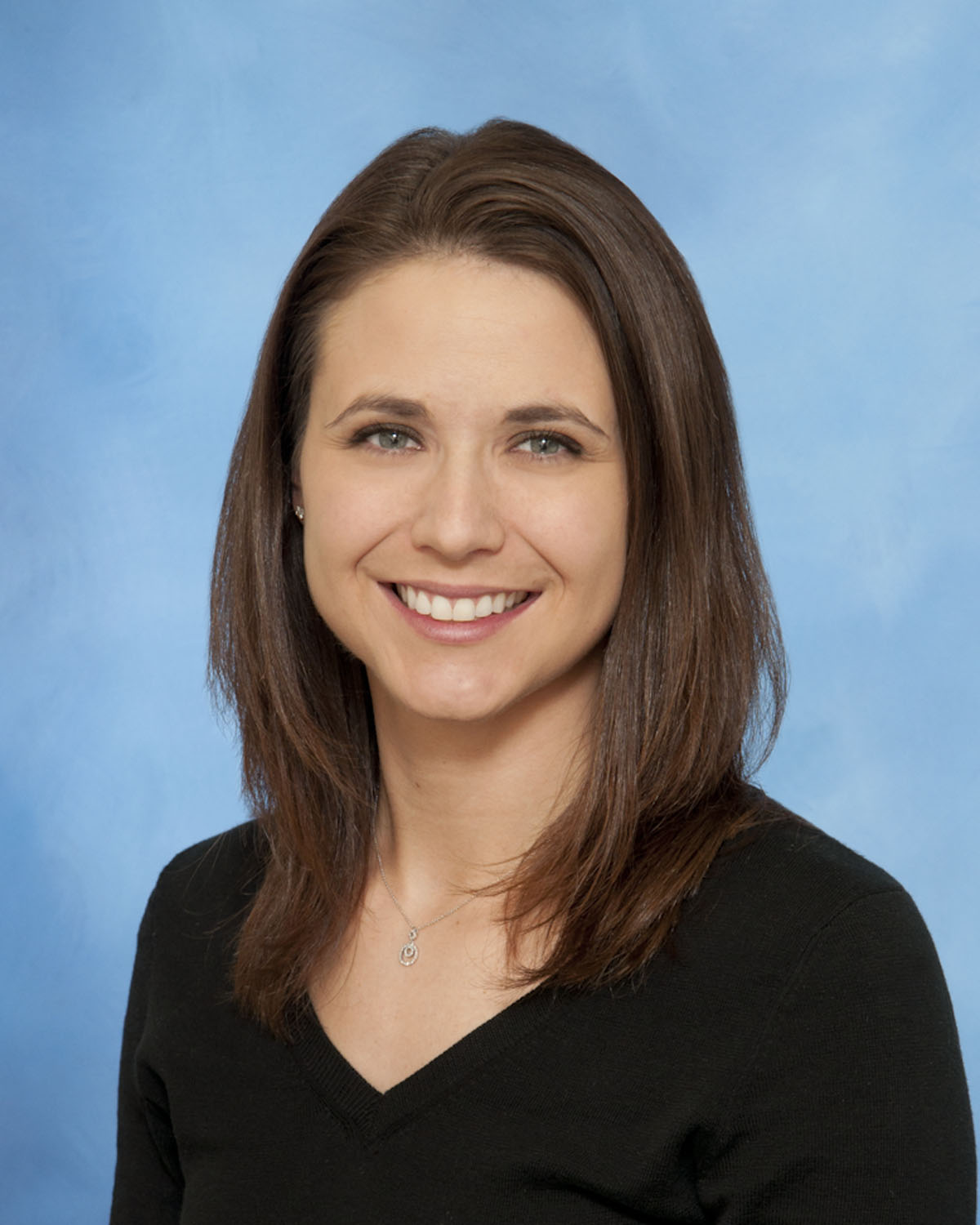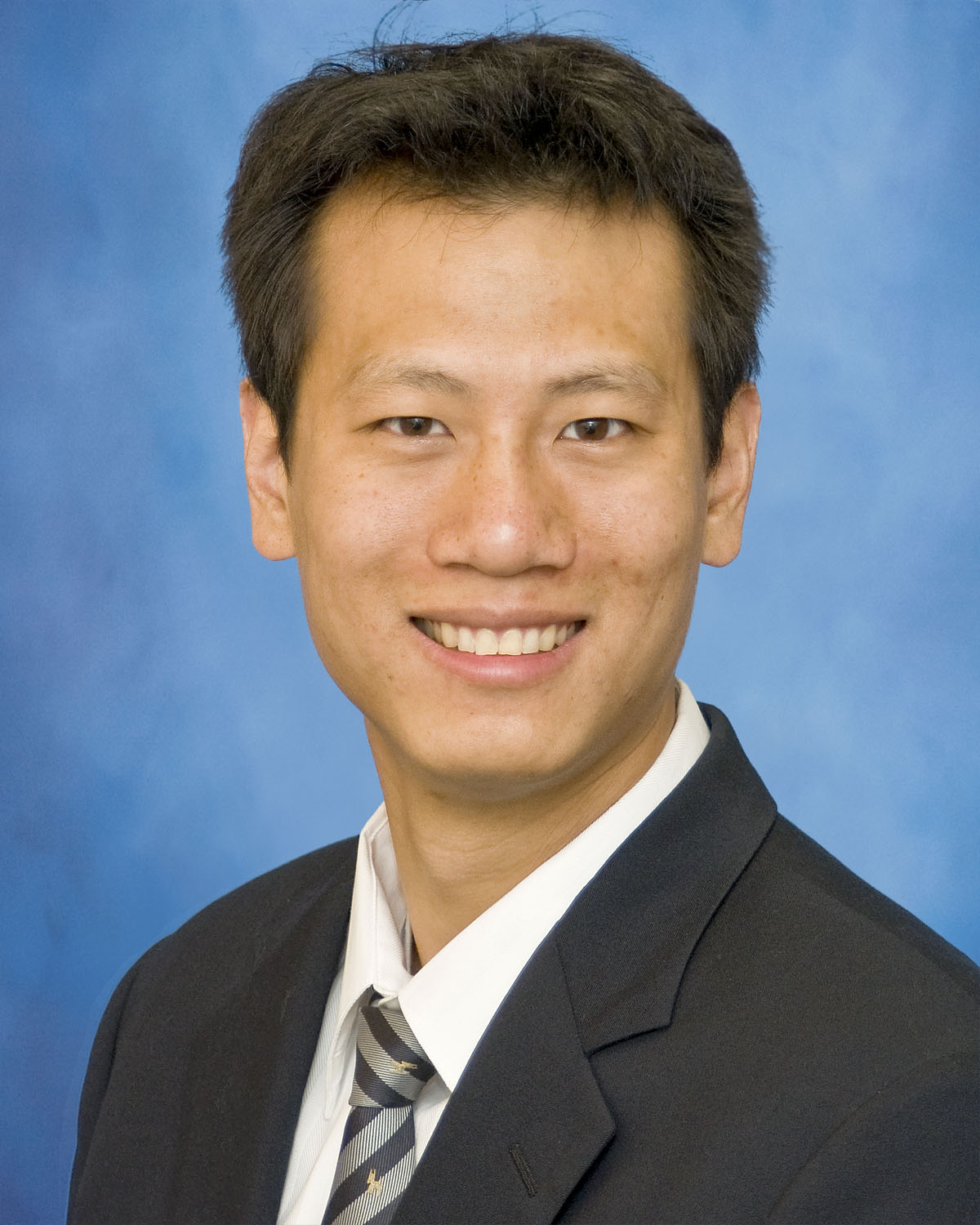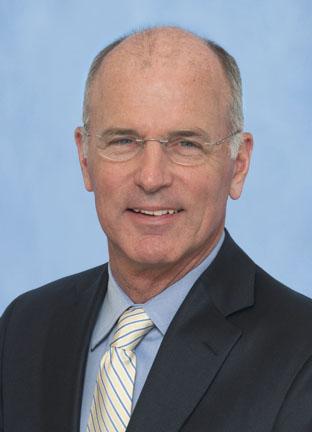A generation or two ago, a surgeon was just that: a skilled and dexterous physician whose knowledge and understanding of the body was matched by an ability to operate on diseased and damaged tissue, vessels and bone, to cut and suture, to heal via mechanical means.
Today, residents training at the University of Michigan Department of Surgery are called upon to stretch themselves further. The third and fourth years of a surgical residency here are devoted to research.
U-M surgery residents Andrea Obi, M.D., and Terry Shih, M.D., M.S., (see sidebar) are firm believers that these years devoted solely to research have had an enormous impact on their growth as physician scientists.
But while residents like Obi and Shih are at work in the lab, striving to discover new ways to make surgeries more successful, less invasive, or even unnecessary, their work must be supported in some way.
Department of Surgery chair Michael Mulholland, M.D., is a staunch believer in the research years. Not only does research time help produce better surgeons, he maintains, it results in more creative, curious and inventive surgeons. These efforts have yielded the kind of academic physicians that make the University of Michigan Health System what it is – and the kind of physicians that are now leading top-tier hospitals and health systems in this country and beyond.
It is time to build an endowment that will fund the surgical residency research years in perpetuity.
Training our surgery residents costs the UMHS about $1.2-1.5 million a year. These funds cover resident salaries, insurance, facility costs, supplies, etc. – the price of doing business in an ever-more expensive medical world.
The funds that support the program currently come from a variety of different sources within this institution and from the National Institutes of Health, sources that will be inconsistent in the future. An endowment to fund the research year would stabilize this support, allowing dedicated research time for surgery residents to endure for generations to come.
The University of Michigan Department of Surgery is formally and excitedly announcing a fundraising goal of $32 million to endow the surgery resident research years.
Endowing the surgery resident research years is a new idea. But, even at these early stages, support for this initiative has been extraordinarily positive.
The Department has already contributed $6 million in seed money to the project. Faculty members – who understand first-hand just how important this is to the Department and to medical science – have pledged $300,000 a year over each of the next ten years. The rest of the funding will come from donors.
“At Michigan we have created an incredible talent pipeline of young surgeon-scientists that are working to change the field of surgery,” says Dr. Mulholland. “Surgical research in the past has yielded remarkable breakthroughs in technique, in application of biology to surgical disease, and in understanding the changing practice of surgery. And yet our patients still face many difficulties. Without research, the surgery of tomorrow will remain the surgery of today, and the daunting problems that still confront surgical patients will remain unsolved. At Michigan our residents are working to change the world of surgery through research. We want to ensure that their good work can continue.”
We asked surgery residents Andrea Obi, M.D,. and Terry Shih, M.D., M.S., to speak about their experiences during the dedicated research fellowship. Both were honored to receive support from a prestigious NIH training grant during their fellowship, but additional funding was needed to fully cover their salaries and experiment costs.

Andrea Obi, M.D., grew up on a horse farm in Augusta, Michigan. After undergraduate studies at the U-M, she earned her medical degree from Loyola Stritch School of Medicine in 2008 then returned to Michigan for surgical residency. She’s planning a career in vascular surgery and completed her two-year research fellowship in 2013.
What was your focus during your dedicated research fellowship?
I studied venous thromboembolism (VTE), namely clots in the deep veins (DVT) that can travel to the lungs (pulmonary embolism or PE). This represents a healthcare crisis in this country and throughout world, affecting more people than breast cancer and AIDS combined, yet receives far less publicity and substantially fewer research dollars. Every year, 900,000 patients in the United States are affected with VTE, with 300,000 patients dying as a result – more than the death rate from heart attack and stroke. VTE is prevented and treated in the same fashion for virtually all patients via the use of injected or oral anticoagulants that serve to thin the blood. Up to 80% of the patients who survive will go on to develop life-long problems with swelling and pain in their legs (completely disabling for some); some will develop ulcers. This is called “post-thrombotic syndrome” (PTS) and costs our healthcare system billions of dollars yearly. To date, there is no effective treatment or prevention of PTS.
How might your findings impact human health, the practice of surgery, etc.?
I used my research years to study ways to block the very initial phases of thrombosis by targeting inflammatory molecules expressed on the vein walls and therefore avoid the use of potentially life-threatening blood thinning medications. I worked on establishing the basic molecular mediators of the post-thrombotic process by inducing DVT in gene deleted (or “knock out”) mice. we have found that we can alter the fibrotic response of the vein wall and have identified a pharmacologic target that may help disrupt the process that leads to PTS.
What has it been like to have two years to dedicate to research in the midst of your training?
I have grown so much as a scientist and as a person. Science and surgery both take an enormous amount of time, practice and effort to develop skills necessary for success. You cannot become a competent surgeon by practicing a few hours during your free time or on the weekends; the same is true for becoming a scientist. Having two years to become immersed in the scientific world has given me the tools I need to pursue my goals of setting up a successful translational lab at the end of my training. I have exited the lab with a much better appreciation for the knowledge “gaps” between what we observe in the lab and in clinical practice. This perspective is unique among clinician-scientists who straddle both worlds and gives us the very exciting possibility of bringing therapy from bench to bedside.

Terry Shih, M.D., M.S., grew up in Troy, Michigan. After undergraduate studies at Harvard, he came to the University of Michigan for medical school and surgical residency. He’s planning a career as a cardiothoracic surgeon and is in the midst of a two-year dedicated research fellowship at Michigan. He’s used part of that time to earn a master’s degree in health and healthcare research.
What are you studying now?
“My research fellowship is in health services research. Specifically, I am looking at how new health care policy will impact surgical care. With the dramatic rise in the cost of health care in the United States, policymakers are experimenting with new policies outlined in the Affordable Care Act that aim to curb health care costs while simultaneously improving the quality of healthcare. Using large patient databases, I am studying whether these policies have worked to reduce costs or improve outcomes after surgery, and whether these policies will have any unintended spillover effects.”
How might your findings impact human health, the practice of medicine and surgery, etc.?
The findings of my research will hopefully influence how policymakers (private insurers, Medicare, hospital administrators, government) design new policy in healthcare. With better understanding of how hospitals and surgeons respond to new policy initiatives, policies can be better-designed to be more effective.
What has it been like to have two years to dedicate to research in the midst of your training?
It’s been an amazing experience. During the clinical years, we are so busy learning how to be great clinical surgeons that it is difficult for us to have focus and energy to perform high-impact research. Having dedicated time away from clinical duties to perform research provides us with a broader perspective and helps us plan a career to not only be a great surgeon, but a highly influential researcher as well.


